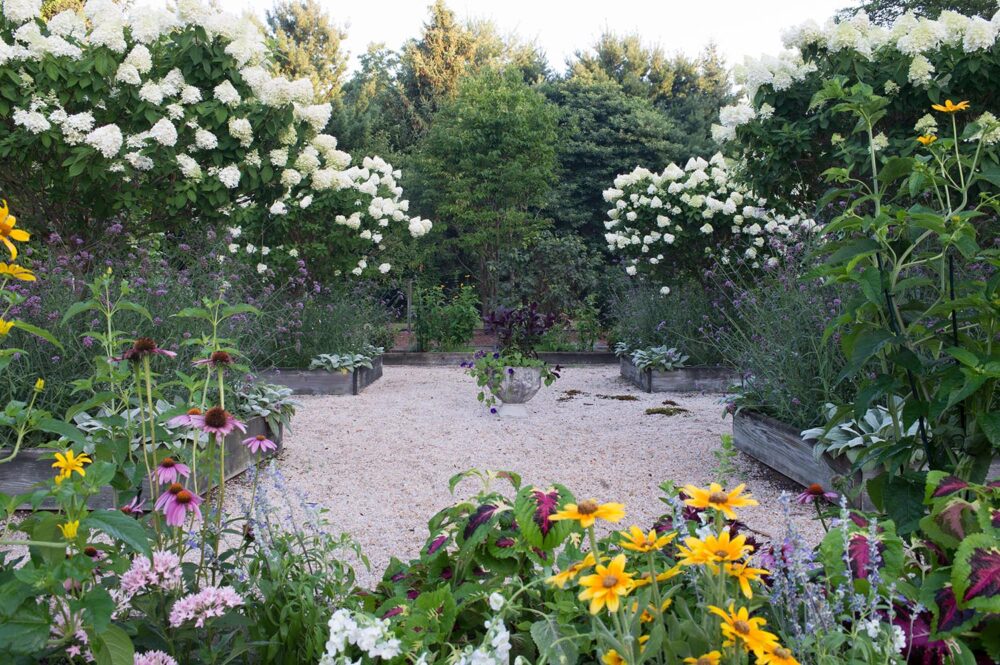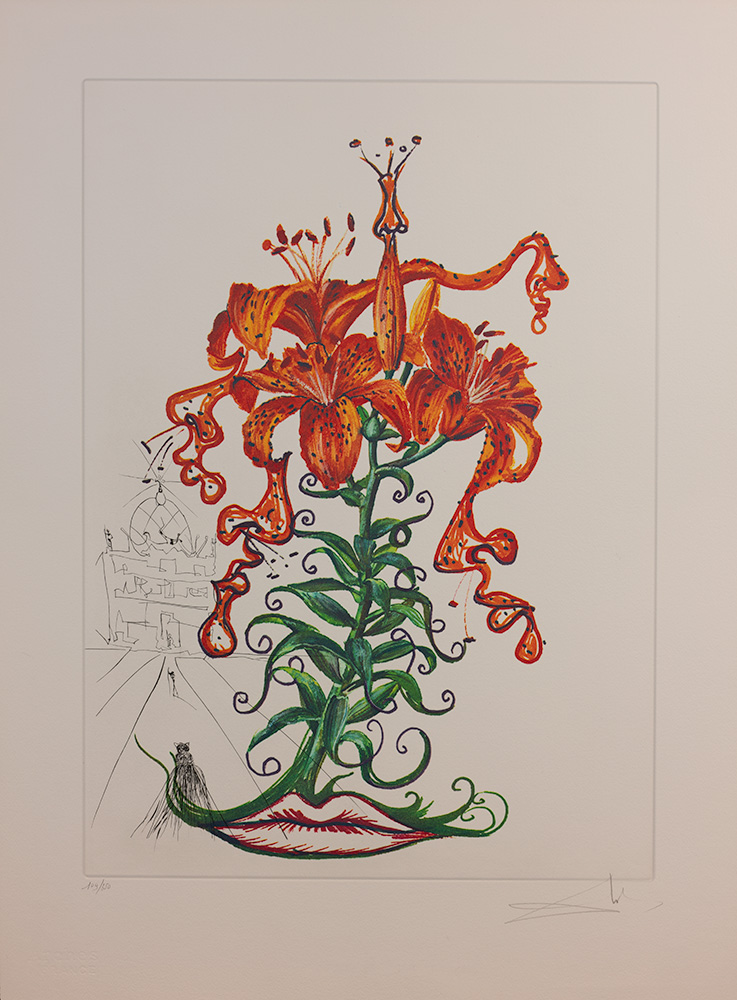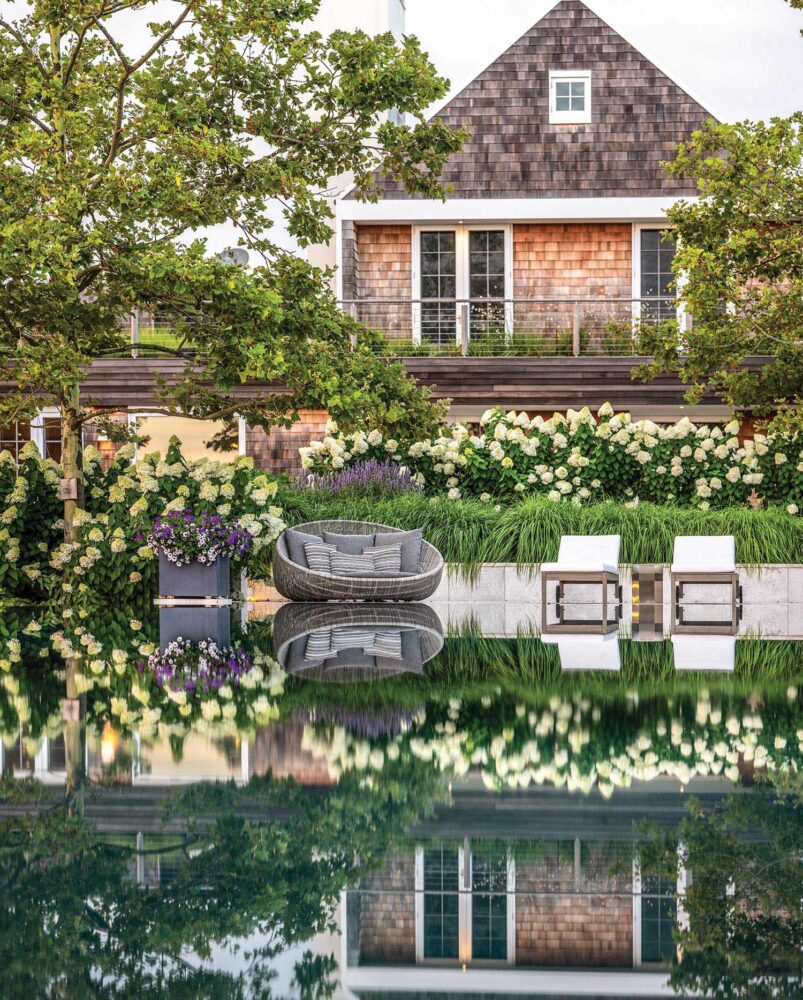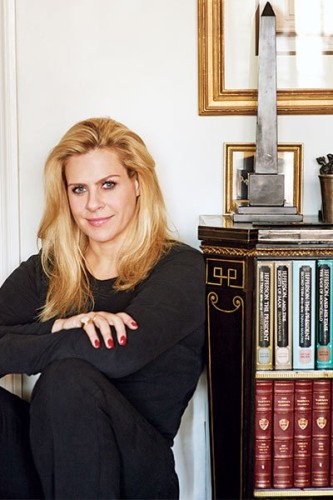
Photo by Andrew French
Q&A
Flower: Alexa, your father, Mark Hampton, literally wrote the book on legendary decorators, and became one along the way. Now you’ve been running the firm for a number of years and have more than made your own mark on the design world. We’re curious: Given the family business, did you always consider your design career inevitable, or did you ever contemplate veering in another direction?
ALEXA HAMPTON: I think it was inevitable. I started working in summers as a runner for my father when I was 13. I’m sure there was a time I thought about something else, like whether I wanted to be in fashion, or a painter, but those were really just sort of the vague, errant thoughts you have at 14 or so. I was always artistic, and of course my father was incredibly artistic, and I think my child’s brain made a facile jump that this is what artistic people do. For him, there was never any delineation between one’s professional and personal pursuits. He’d get very cross when people in the office would travel and not go to see beautiful houses or museums. He’d wonder, Are they interested or aren’t they?
I’m guessing you were always interested. Between your dad and your mom [Duane Hampton] and her own fabulous sense of style, you must have been enveloped by beauty and graciousness since you were in the womb.
Everything in our house was always so weighted toward the creative, and as a child, I felt lucky that I had parents that made everything fun. My father always found ways to delight us, whether it was designing incredible dollhouses for us that were bigger than an end table, or drawing portraits of everybody at our birthday parties. Granted, there were times when we were being taken to the great houses of England, and I thought it could be a bit of a drag, or we’d have our feet walked off in museums and I’d get bored of it. I was a typical kid; there were moments when I was like, Please, can’t I just wear jeans or go to the beach? Now I am tremendously grateful to have had those experiences.
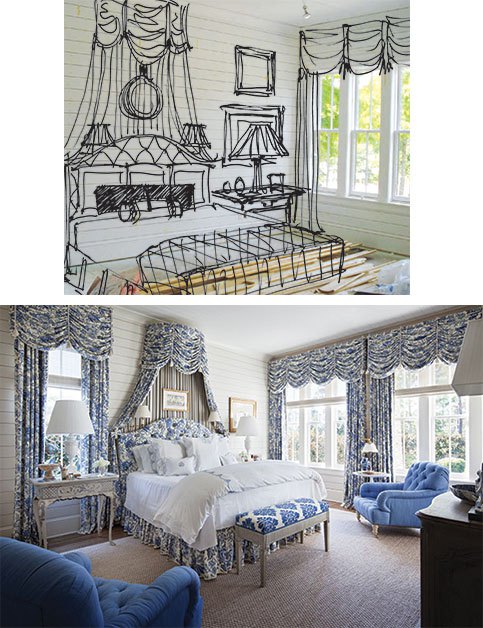
One of the tools Hampton utilizes in her design process is to take a photo of a room and draw in furniture and accessories to help the homeowner visualize the end result, as seen in the “before and after” of this blue-and-white bedroom. “They’re fun, and the clients love them because it really helps them see where we’re headed,” says Hampton. | Photo by Steve Freihon, Sketch courtesy of Potter Style
First and foremost, it’s always got to be part of the conversation. Whatever you value, whether it’s good manners, or health, or design, you talk about it. For instance, when the kids can’t sleep, instead of counting sheep, I have them build a house. I’ll ask them to close their eyes and tell me how many rooms we have, how big is the bed, what does the outside look like and how many windows are there, and do we have a garden. My daughter has been working on a Paris apartment recently. And I’m also pleased that my children love to draw—my father, of course, painted beautiful watercolors, some of which my mother has passed on to them, and art has always been so important to me.
I love that your kids are already designing houses, if only in their dreams. Now we want to hear more about your decorating style—how would you define it?
It changes, and I’ve noticed that it’s changing a lot recently. When I took over the firm after my father died, one of the first things I stopped doing was using a lot of trim—a total reaction to the glut of trims and swags used in the ’80s. But in the past decade, I’ve gotten back into those kinds of details, and I’m getting very elaborate with them. And now I’m enjoying things like stencils. I want more pattern, and more variations of seating, less pairs. The thing that hasn’t changed is my need for logic and practicality, which is obviously not the sexy part of design. I love houses and rooms that are so well designed that you are psychologically unaware of the ways in which they are directing you. Then, I’m a junkie for neoclassicism—I admit it. Perhaps it’s no coincidence that I married a Greek man! My husband thinks that my fondness for Acropolis-like columns and Greek keys are out of my love for him, but I tell him I had a relationship with friezes way before I loved him.

Hampton’s love of classicism is evident in this entry way composition. | Photo by Steve Freihon
Where does your inspiration come from?
I get inspiration everywhere I look, be it architecture, a garden, food, or music. I’ve had a Marvin Gaye album stuck in my head for a week now, and that makes me pretty happy. And I always love studying the legendary designers and seeing what current designers are up to. Right now I’m having a Renzo Mongiardino moment, and I’m absolutely obsessed with Studio Peregalli in Milan. I’m also on Pinterest all the time, and I’m a big consumer of blogs and books. I’ve just ordered Carolyne Roehm’s book, Flowers, and I’m ready to dig in.
Well, focusing on flowers, tell us how they factor into your rooms and creative process.
I’m a stalwart in terms of floral fabrics. I’m very comfortable using chintzes and other floral patterns, maybe more so than some of my younger peers—I don’t have any fear of dowdiness sometimes people have of them. But I believe they’re being more widely embraced right now, which delights me. In terms of using fresh flowers, as a novice, I was very into small, dense arrangements of the same flower for a long time, but I’m starting to mix more. In my Kips Bay Show House room this year, I had a lot of fun getting very colorful, and varying heights to get some lift. I don’t feel terribly confident about my floral-arranging ability, which automatically makes it of great interest. I always love a challenge, so I’m definitely ramping the floral thing up.
ALEXA’S FLORAL FAVORITES
FLOWER
Purple anemones. There are great paintings with anemones by Matisse, and I think that’s the first time I put it together that they were my favorite flower. They’re so precise—you see each petal, and they have that fabulous black center.
SCENT
I wear Narciso Rodriguez. It’s gorgeous. I prefer prettier florals to the musky ones. They don’t do it for me.
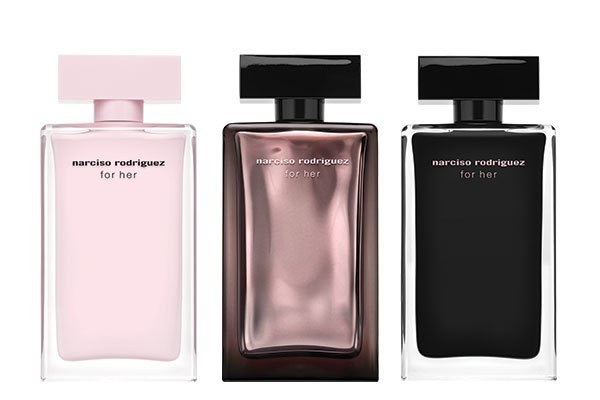
CONTAINER
I like very simple—usually low or tall glass rounds with the leaf wrapped around the inside. And then I love mint julep cups, but I don’t like the vessel to be the point. I want the flowers to take center stage.
FLORAL DESIGNER
Ariston Flowers. They’re wonderful Greek people like my husband! We’ll email back and forth and I send them pictures of things I like—they can do anything. (212.929.4226)
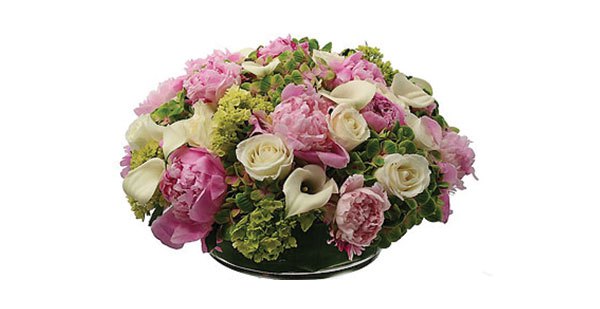
FLORAL FABRIC
Oh, you can’t do that to me; it’s just too hard. I love so many Bennison fabrics, I almost don’t know where to start. My favorite from my own collection for Kravet is a floral garland on linen called Galena.
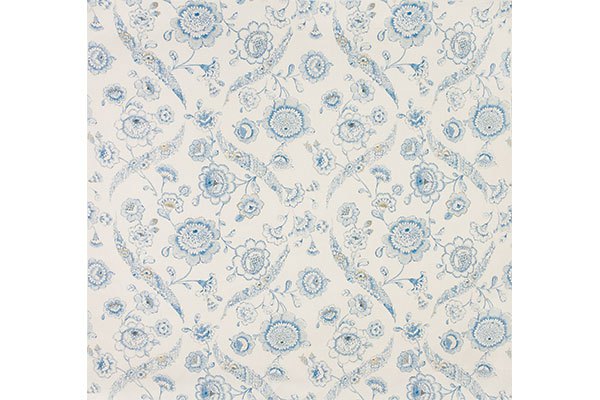
By Karen Carroll

